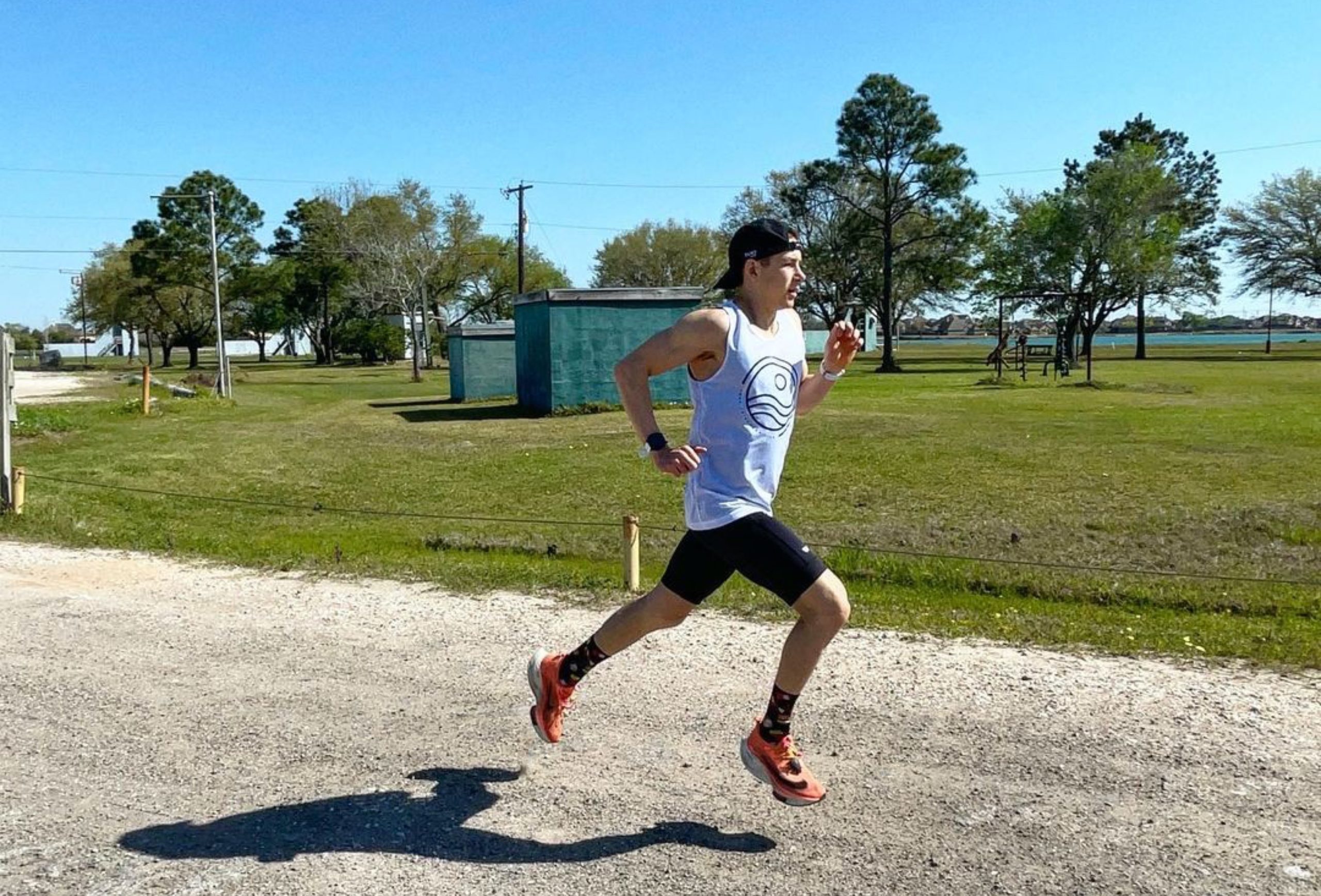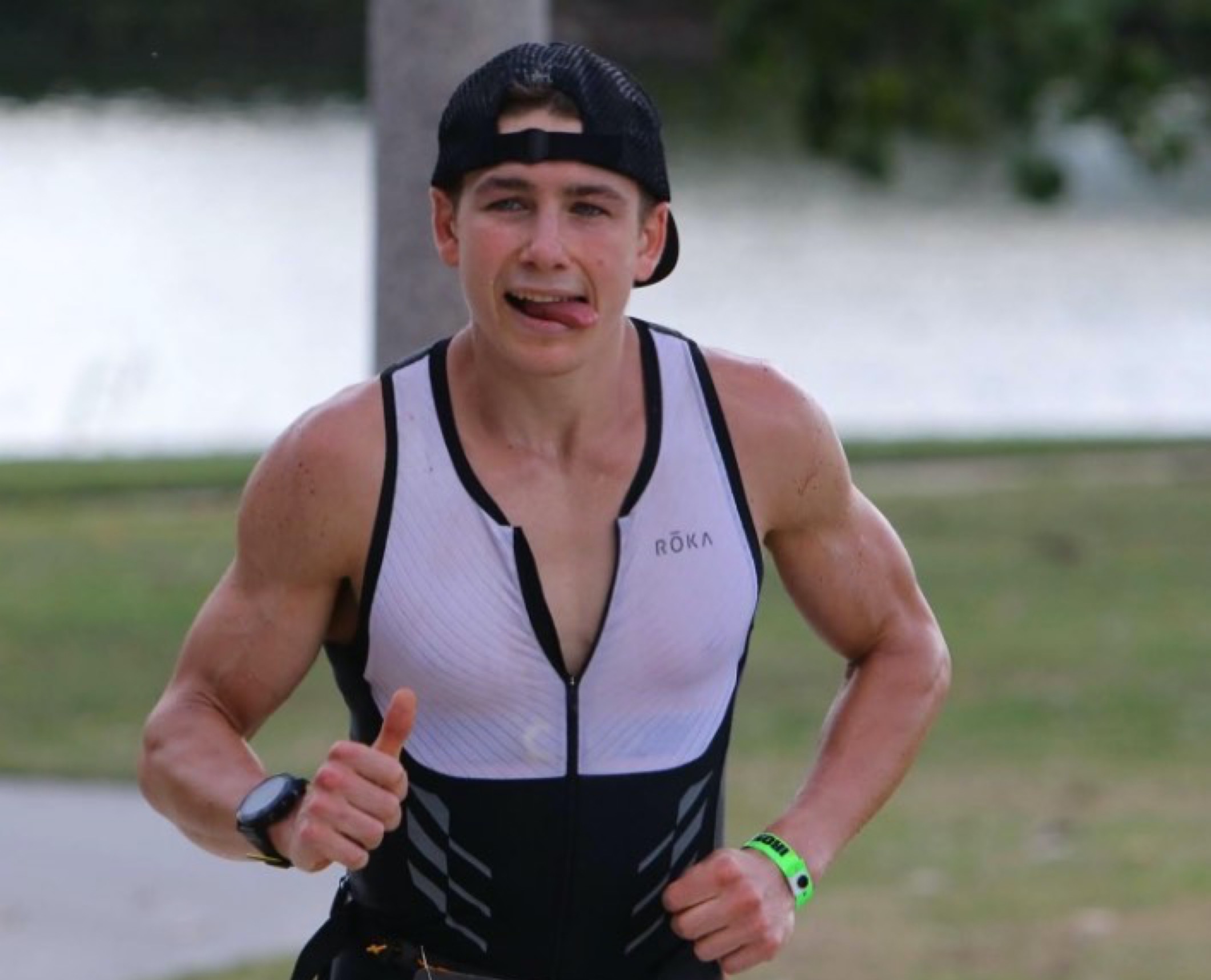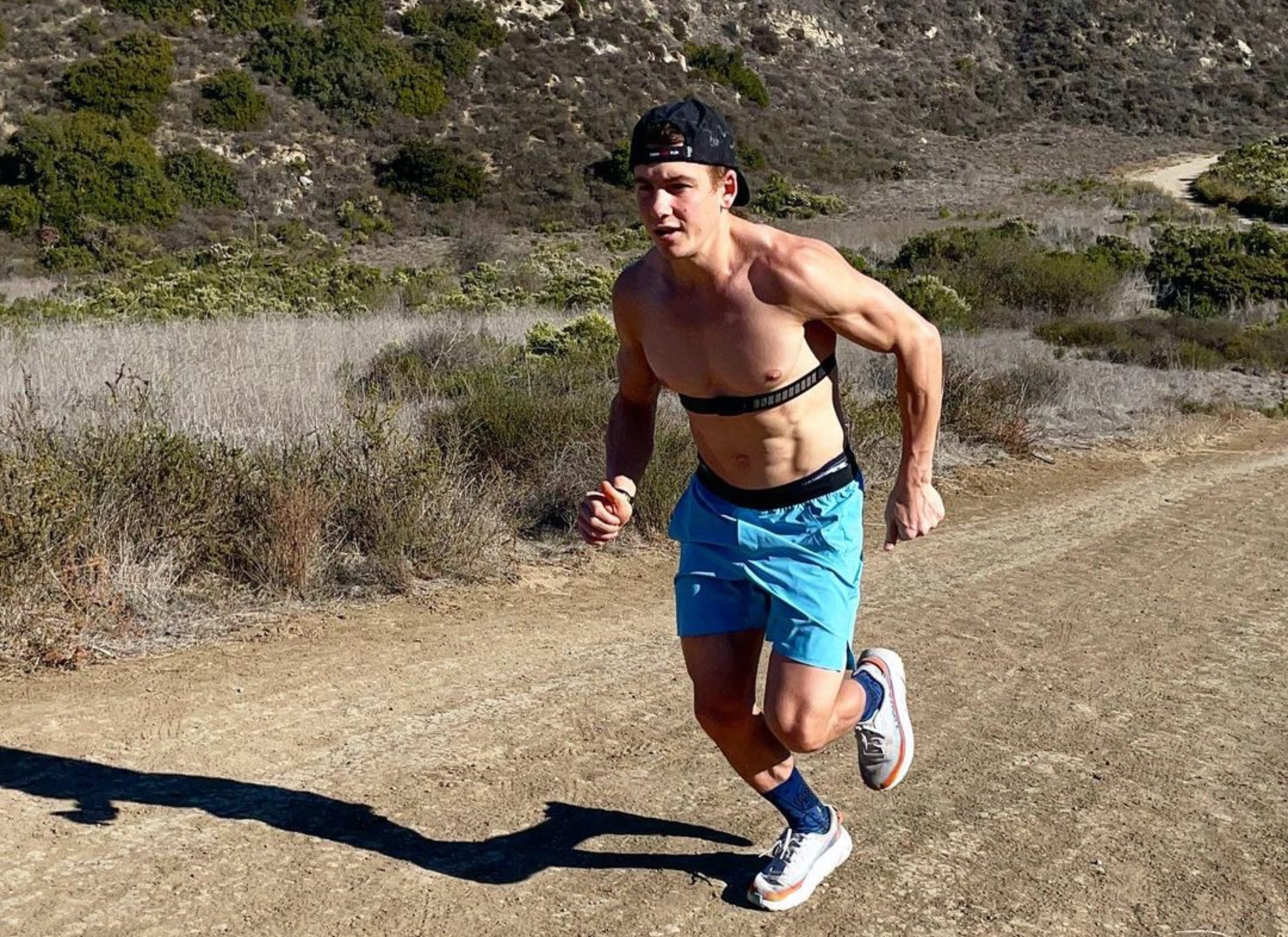Ahead of the Curve
AgeGrouper Parker Kerth’s family history of addiction sets him down a straight and narrow path and all signs lead to pro

Parker Kerth carries a stronger sense of self discipline at 23 than most adults achieve in their lifetime.
“I made a decision before even going to school that I would not drink or do drugs,” said Kerth. “For me it was never a hard choice, I prioritized training, I had to do it. If I partied, it would have gotten in the way.”
According to Kerth, his commitment to triathlon is a healthy alternative to what could have been.
Kerth’s grandfather was an alcoholic and research shows that people who are genetically predisposed to alcoholism have a higher likelihood of developing the disease. So, at an early age his parents took a proactive approach to educating him about addiction. They were very open and honest about the disease, the impact it had on their family and Kerth’s increased risks.
Kerth had fond memories of his grandfather as a ‘happy, energetic guy’–who played volleyball and went on 100 mile bike rides. But he also remembers that over time, his grandfather’s alcoholism took a toll on his physical health and affected his relationships. He didn’t want that for himself.
Using exercise to stay clean
Kerth put typical college transgressions aside and instead focused his energy on endurance sports.
A 2011 study titled May Exercise Prevent Addiction? found that regular exercise, maintained for a long period of time, could abolish drug-seeking behavior which could lead to addiction later in life.
So Kerth hit the gym…again…and again…and again.
In fact, Kerth spent so much time exercising at the gym that the staff took notice and grew concerned.

“I got referred to the college counselor because they thought I had an exercise addiction and were worried that it was causing a negative impact on my social life and my studying.”*
Is it possible to replace one kind of addiction with another? Research shows that it is. According to the 2011 study, “although exercise may prevent drug addiction, one should be aware that when the exercise schedules interfere with the social, occupational and family lives it can be considered itself as a dependence.”
Concerned for his health, medical staff ran multiple blood tests. (His markers came back normal, and in some cases, better than average.) Staff also sought to determine if his exercise habits were negatively affecting other areas of his life.
“I met with them and [explained] that I enjoyed exercising and everything in my life was in check,” said Kerth. “It wasn’t impacting me in a negative way, in fact, it was helping me stay focused. I went out and had a good social life.”
Eventually, it was determined that he was physically and emotionally healthy. So Kerth continued to train, all the while, making sure to maintain healthy relationships and keep up with his school work.
Throughout college, Kerth would go out with friends. “I went to parties and I went out, but the most I ever drank was a sip of beer.” He made it clear he didn’t like to drink, but he did love to eat. His senior year he started a YouTube channel with a friend called Fast Foodies, where they would rate and review fast food, snacks, and protein products. He graduated from Colorado College with a degree in computer science.
A strong foundational work ethic
In highschool, Kerth was a competitive wrestler and gymnast. When he started college he needed something to focus his energy on so he took up running.
He would commonly do double session days, running every morning before class. He progressed quickly and landed himself a spot as a walk-on for the cross country team his junior year.
“I loved running but was doing too much and got injured. Since I couldn’t run, I got a bike and started riding. The rest was history.”
His foray into triathlon began his senior year of college. With a strong work ethic, natural physical abilities and a swim coach (his father was a collegiate swimmer), Kerth was set up for immediate success in the sport.
Today, Kerth continues to put in the work. His alarm goes off at 4am every day. He doesn’t hit snooze–he just gets up and gets on the bike. He does a light 45-minute ride and then kicks into gear with his prescribed training. When he’s done, he heads to work, only to return home to log an evening strength session and finish with another 45-minute ride before bed.
“It’s not a matter of if I’ll do it. It’s almost like breathing. How do you breathe? You just do it. It’s never a question, you just commit and do it,” said Kerth

Training like a pro
Kerth is part of a growing trend in multisport: younger athletes getting into long course triathlon at highly competitive levels. “As long as my body can handle the training load, I exercise as much as I want,” said Kerth. But he is always looking for signs of burnout, at which point, he pumps the brakes and takes a day (or more) off.
He also focuses a lot of time on recovery. He admits he never spent time on recovery in the past and suffered injuries as a result. Now, he spends at least 30 minutes a day on mobility sessions. These include, hip and ankle mobility, foam rolling, scraping–which he describes as a “gamechanger”–dry needling once or twice a month on his legs, and compression.
Kerth’s hard work has paid off. His rookie season included a 15th overall finish at Gulf Coast 70.3, a trip to the 70.3 World championship in St. George, a 4th overall finish at Ironman Waco and a spot in the upcoming Ironman World Championships this May.
Kerth credits much of his success to his coach, Natasha Van Der Merwe at NVDM coaching. “She is incredible, always going above and beyond for her athletes,” he said. “I can’t express my gratitude enough.”
The future is bright
“I’d like to go pro at some point, but I don’t want to be just a full time triathlete. I’d like to do more stuff around triathlons, maybe get into the business and product development side of things.” As a software engineer at Garmin, he’s well on his way for both.
For now though, Kerth is prioritizing the sport and continuously exploring just how far he can push his body without pushing it over the edge.
When it comes to over-exercising, he says, “For me, I think the biggest thing is being aware of it. If you are aware of it and you try to pretend it’s not an issue, that is when it starts being unhealthy.” So he makes sure that he doesn’t cross the line between training a lot and training too much by listening to his body and seeking support and guidance from his family, friends and coach.
***
*If you suspect you have an exercise addiction, you should consult your doctor.
If you or someone you know is struggling with addiction or a substance abuse disorder (SUD), visit The Substance Abuse and Mental Health Services Administration (SAMHSA).

